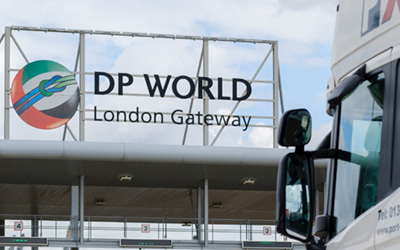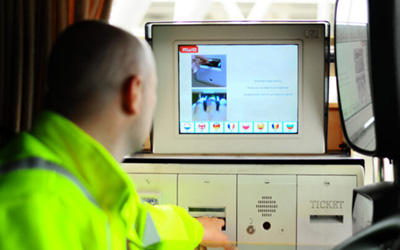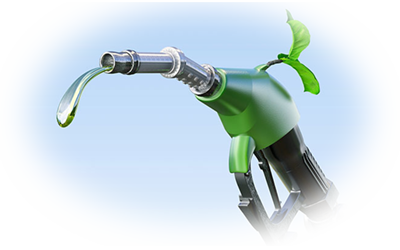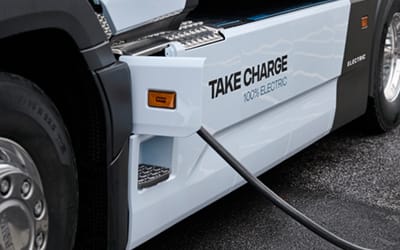Understanding Vehicle Booking Systems (VBS) & Charges
The ports of London Gateway and Southampton are key hubs for UK trade, handling a significant volume of the nation’s imports and exports.
Recently, DP World have announced that they will be bringing in additional VBS charges, along with an increase to the current ones. This announcement of an increase in vehicle booking system (VBS) charges at these ports has raised concerns among logistics companies, freight operators, and businesses that rely on these ports for their supply chain operations.
This article explores the details of the charge increase, its implications for various stakeholders, and the broader impact on the UK’s logistics industry.
 What is a Vehicle Booking System?
What is a Vehicle Booking System?
A Vehicle Booking System (VBS) is an essential tool used by ports to manage the flow of traffic, especially heavy goods vehicles (HGVs), into and out of port facilities. The system allows for the scheduling of vehicle arrivals, which helps in reducing congestion, optimising loading and unloading operations, and ensuring that port facilities operate smoothly and efficiently. By pre-booking time slots for vehicle arrivals, ports can better manage their resources and reduce the risk of bottlenecks that could delay operations.
Why Are VBS Charges Important?
VBS charges are fees levied on logistics companies and freight operators for the use of the booking system. These charges are typically used to cover the costs of maintaining and upgrading the system, as well as to manage traffic flow at the port. With efficient vehicle scheduling, ports can reduce wait times, improve turnaround times for vehicles, and minimise the environmental impact of port operations by reducing idle times for trucks.
The Upcoming Increase in VBS Charges
Details of the Charge Increase
As of the latest announcement by DP world, the vehicle booking system charges at London Gateway and Southampton ports are set to increase by a significant percentage. The exact percentage increase varies depending on the type of vehicle and the time of day the booking is made. For example, peak hour bookings might see a higher surcharge compared to off-peak hours. This change is part of a broader strategy to manage port congestion and improve the efficiency of port operations.
Reasons Behind the Increase
Several factors have contributed to the decision by DP world to increase VBS charges:
Infrastructure Upgrades: Both London Gateway and Southampton ports are undergoing significant infrastructure improvements to handle increasing cargo volumes. The higher charges are partly aimed at funding these upgrades, which are expected to enhance the ports’ capacity and efficiency in the long run.
Operational Efficiency: By adjusting charges, port authorities hope to incentivise logistics companies to book during off-peak hours, thereby distributing traffic more evenly throughout the day and reducing congestion during peak periods.
Environmental Considerations: The increase in charges is also linked to environmental goals. By encouraging better scheduling and reducing idle times, the ports aim to lower carbon emissions associated with freight transport.

Economic Pressures: The rising costs of operating and maintaining port facilities, coupled with inflationary pressures, have necessitated a review of the existing VBS charges.
Impact on Businesses and Consumers
The ripple effect of increased VBS charges is likely to extend beyond logistics companies, affecting businesses and consumers:
Higher Product Prices: As logistics companies face higher costs, businesses that rely on imported goods may see an increase in their supply chain expenses. This could lead to higher retail prices for consumers.
Supply Chain Disruptions: Companies may need to re-evaluate their supply chain strategies to minimise the impact of higher charges, potentially leading to disruptions or delays in the availability of goods.
Encouragement for Local Sourcing: The increased costs associated with importing goods may prompt some businesses to explore local sourcing options, which could boost domestic industries.
 Broader Implications for the Logistics Industry
Broader Implications for the Logistics Industry
The increase in VBS charges announced by DP World at London Gateway and Southampton ports could have broader implications for the UK’s logistics industry, as charges are determined by size of trucks and container specification.
Port Competition: As charges increase at these major ports, logistics companies might consider using alternative ports with lower fees. This could lead to a redistribution of port traffic across the UK.
Long-Term Efficiency Gains: While the initial impact of the charge increase may be challenging, the long-term benefits of improved port infrastructure and reduced congestion could lead to greater efficiency and cost savings for the logistics industry.
Environmental Impact: The emphasis on reducing congestion and idle times aligns with broader environmental goals, potentially leading to a greener logistics sector in the long run.
How to Prepare for the Change
Strategies for Logistics Companies
To mitigate the impact of increased VBS charges, logistics companies can adopt several strategies:
Optimise Booking Schedules: By carefully planning and booking slots during off-peak hours, companies can reduce the impact of peak hour surcharges. Advanced scheduling tools and software can assist in this process.
Enhance Route Planning: Investing in advanced route planning technologies can help logistics companies identify the most cost-effective and time-efficient routes, reducing the time vehicles spend at the port.
Collaborate with Port Authorities: Engaging in dialogue with port authorities can help companies stay informed about future changes and provide feedback on the impact of the charges, potentially influencing future policy decisions.
Diversify Port Usage: Companies may consider using alternative ports to avoid higher charges, spreading their operations across multiple locations to minimize costs.
 Recommendations for Businesses
Recommendations for Businesses
Businesses that rely on imported goods through London Gateway and Southampton ports should also prepare for the impact of increased VBS charges:
Review Supply Chain Strategies: Assessing current supply chain arrangements and exploring alternative sourcing options could help mitigate the impact of higher logistics costs.
Negotiate with Suppliers: Engaging in negotiations with suppliers to share the burden of increased costs or to find more cost-effective shipping options can help manage the impact on profit margins.
Invest in Technology: Utilizing supply chain management software can provide greater visibility into logistics operations, helping businesses identify areas where they can cut costs or improve efficiency.
Conclusion
The increase in vehicle booking system charges announced by DP world at London Gateway and Southampton ports represents a significant change for the logistics industry. While the initial impact may be challenging for logistics companies, businesses, and consumers, the long-term benefits of improved port efficiency, reduced congestion, and environmental gains are expected to outweigh the costs, announced by DP World.
By adopting strategic approaches and leveraging technology, stakeholders can navigate the changes and continue to thrive in an evolving logistics landscape.
FAQ
 What are VBS charges?
What are VBS charges?
Each of the ports, depots and rail hubs around the country have their own vehicle booking systems (VBS) charges for container movements which can change regularly.
What is VBS booking?
A specially designed software called Vehicle Booking System,
(also known as a Truck Appointment System or VBS) enables terminal operators to arrange the arrival and movement of trucks in the terminal, or ports.
SARR Logistics UK
With a legacy built on trust, backed by extensive experience, a global network, and a customer-centric approach, SARR Logistics UK emerges as the ultimate partner for all your supply chain needs. If you would like to know more reach out to us today and experience a seamless, efficient, and dependable shipping solution tailored to elevate your business. For further inquiries and to explore how SARR Logistics UK can help you contact our team today.![]()



 What is a Vehicle Booking System?
What is a Vehicle Booking System?
 Broader Implications for the Logistics Industry
Broader Implications for the Logistics Industry Recommendations for Businesses
Recommendations for Businesses




